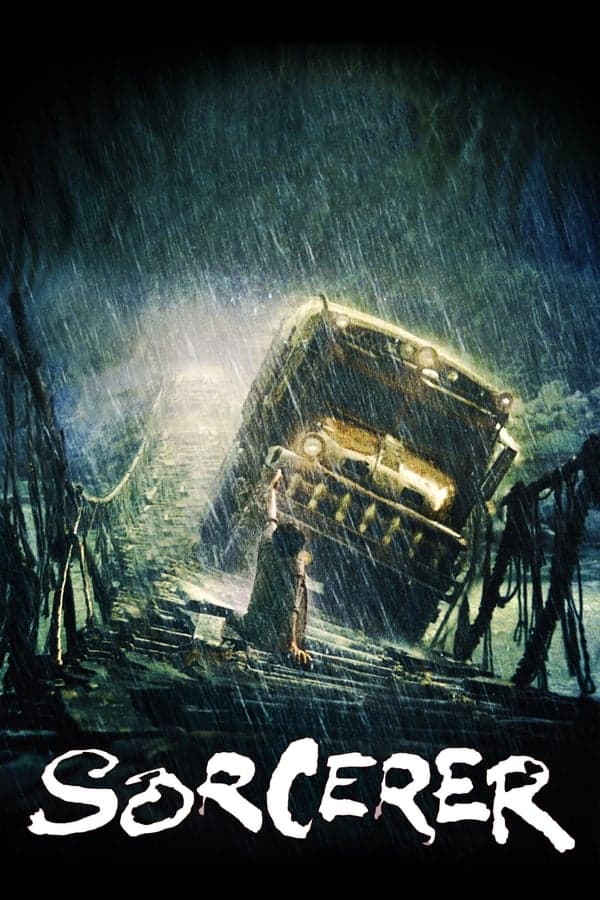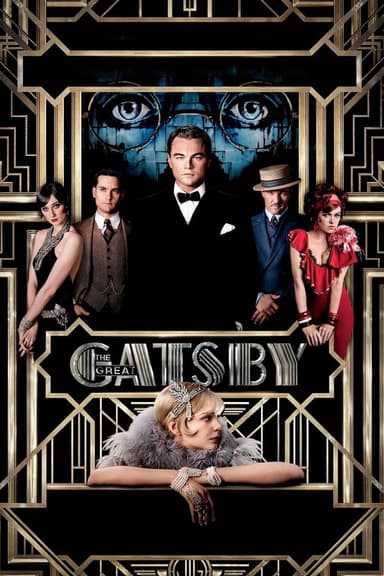
Sorcerer
1977 • Adventure, Drama, Thriller • PG
Four men from different parts of the globe, all hiding from their pasts in the same remote South American town, agree to risk their lives transporting several cases of dynamite (which is so old that it is dripping unstable nitroglycerin) across dangerous jungle terrain.
Runtime: 2h 2m
Why you should read the novel
If you're looking for a deeply immersive tale of suspense, 'The Wages of Fear' by Georges Arnaud offers a nuanced, psychological dive into desperation and risk. The novel builds a palpable sense of anxiety and foreboding, intimately chronicling the characters' personal struggles and moral dilemmas. Reading the book allows for a more detailed exploration of themes like existential fear, human frailty, and the extremities of survival, all set in a richly described, oppressive landscape.
With Arnaud's writing, you'll find deeper character development and intricate emotional arcs that give context to every perilous moment. The novel invites you to dwell on the internal conflicts and motivations that drive the story forward, far beyond what can be conveyed in two short hours of cinema. Its literary craftsmanship encourages contemplation and engagement with the deeper meanings behind risk and courage in the face of impossible odds.
Choosing the novel over the film adaptation means you can absorb the tension at your own pace, pausing to reflect on the desperation of the characters and the unforgiving nature of their circumstances. Arnaud's prose draws the reader into an unforgiving world with a level of psychological insight and vivid detail that not only grips but also enriches the entire experience, making the story linger long after the final page.
Adaptation differences
One of the most notable differences between 'The Wages of Fear' and Sorcerer is the setting and time period. Arnaud’s original novel takes place in a small, poverty-stricken town in Central America, focusing primarily on the oppressive heat and the sense of isolation. Sorcerer, on the other hand, reimagines the location with a more global, gritty approach, introducing characters from diverse backgrounds and updating the political climate to reflect the 1970s.
The characters themselves are treated differently across the two works. In the novel, character backgrounds and motivations are outlined with precision, foreseeing the existential crisis underpinning each man’s decision to undertake the deadly job. Sorcerer expands on this by giving each driver an extended vignette detailing their backstory, sometimes incorporating elements completely absent from the book, thus altering the viewer’s perception of their desires and fears.
Plot-wise, both the book and the film focus on a perilous truck journey transporting unstable nitroglycerin. However, the novel emphasizes psychological tension and existential dread, carefully drawing out each moment of anxiety. The film adaptation intensifies the survival aspect with elaborate action sequences and visual effects, relying more on external peril than internal struggle.
Finally, the tone and message differ significantly. Arnaud’s 'The Wages of Fear' is a bleak meditation on despair, capitalism, and the expendability of human life, with an ending that underlines the futility of the men’s sacrifice. While Sorcerer maintains a somber tone, it shifts to a more nihilistic, action-driven narrative—focusing on fate and bad luck—leaving less room for the novel’s philosophical ponderings and social critiques.
Sorcerer inspired from
The Wages of Fear
by Georges Arnaud












